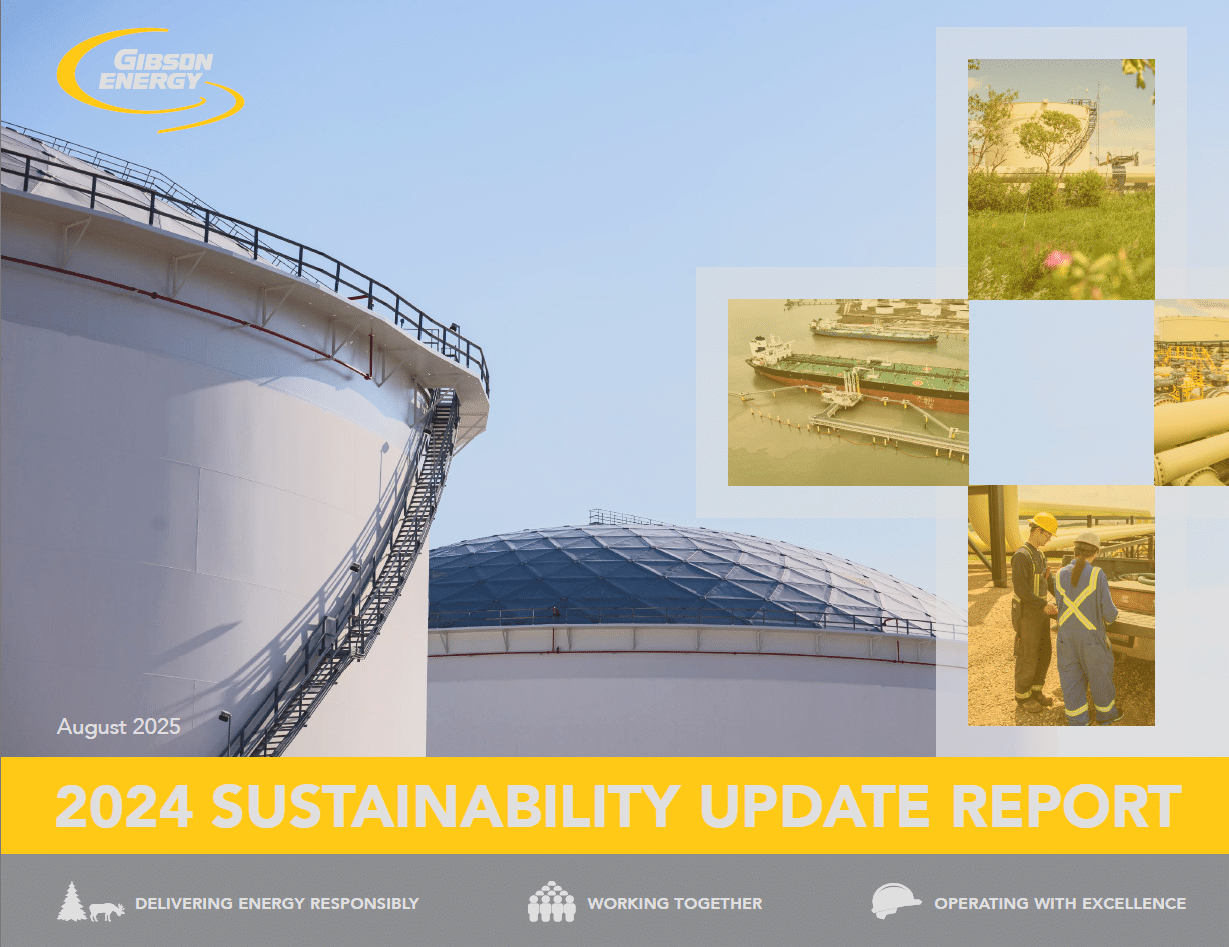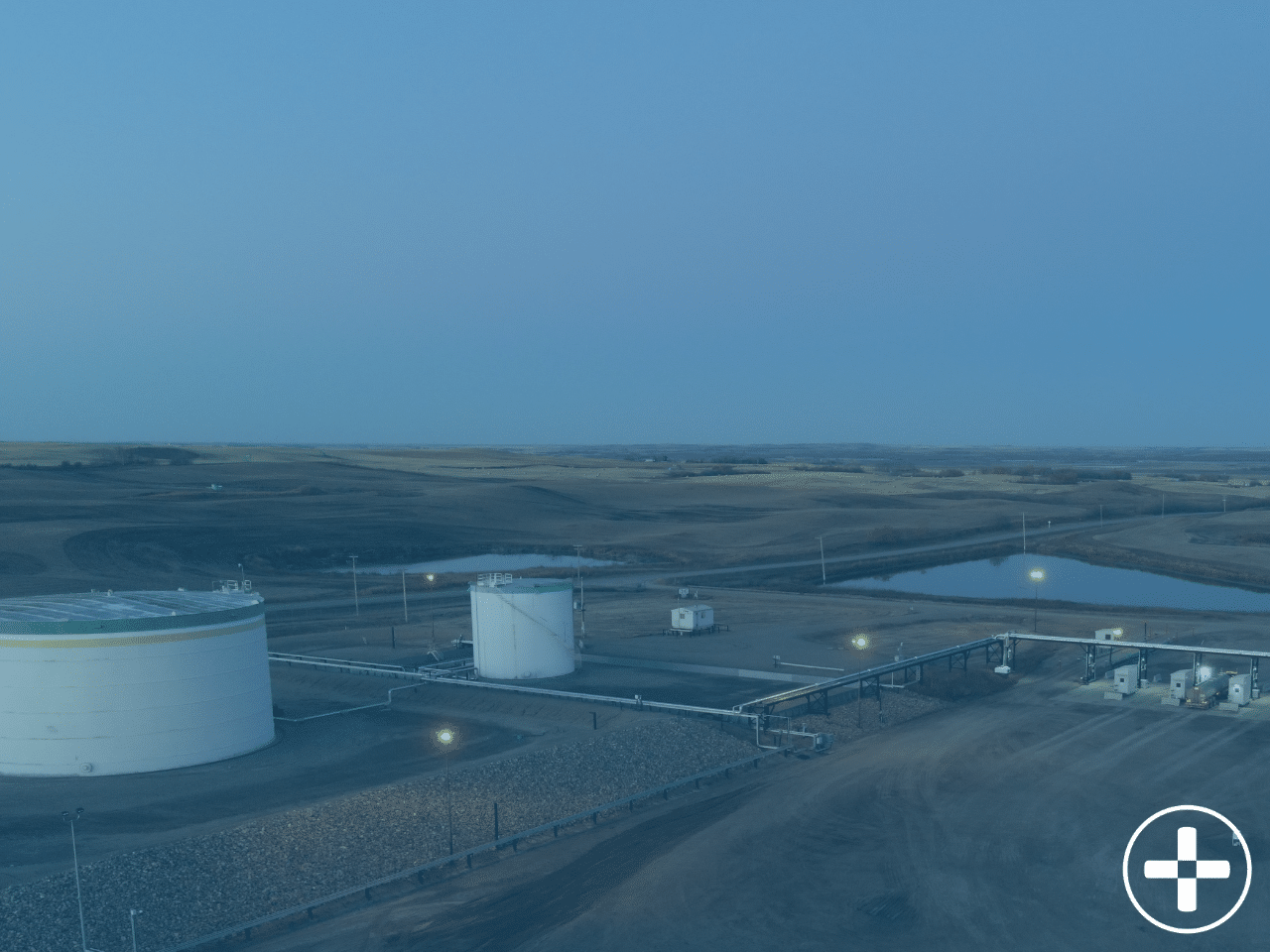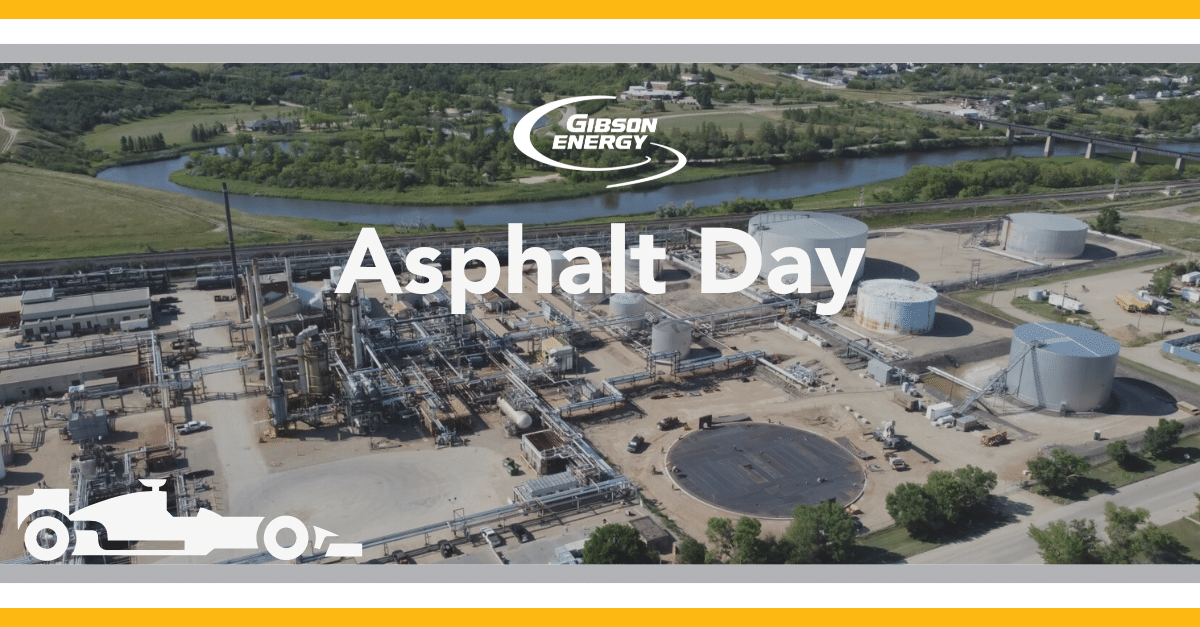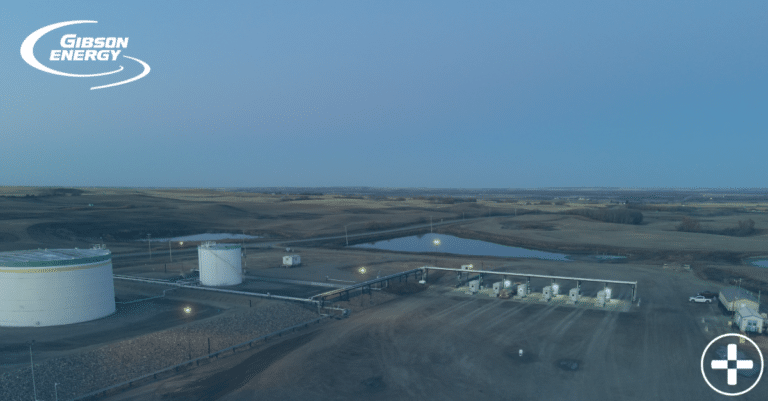Rev up for Asphalt Day on May 15! Discover the benefits of asphalt in roofing and paving and see how our asphalt helped pave the way for the F1 track in Las Vegas!
Gibson’s Asphalt

Operating year-round with road, rail and pipeline connections, our Moose Jaw Facility runs a heavy crude feedstock, with the resulting light end products composed of tops, heavy distillate, light distillate and CVGO, while heavy end products include roofing flux and road asphalt.
As part of our efforts to expand capacity, reduce emissions and improve the efficiency of our operations, we completed a project at our Moose Jaw Facility to construct a natural gas liquids (NGL) plant and switch from a feedstock-based, higher emissions intensity fuel supply to natural gas, while also increasing the production capacity of the facility.
Did You Know?


Why An Asphalt Day?
The People: Thousands of people work in liquid asphalt refining, paving construction, roofing manufacturing, engineering and other industries. The Asphalt Institute wants to make May 15 a day for these people to celebrate their industry and its important place in global infrastructure, transportation and housing.
The Past: An ancient legend tells that King Sargon of Accad was set afloat in the Euphrates River around 3800 B.C. in a reed basket coated with asphalt. Excavations northeast of Baghdad revealed that Sumerians used asphalt for construction between 3200 and 2900 B.C. The evolution of asphalt and its many uses is fascinating.
The Future: As asphalt usage progresses, there will be a particular focus on sustainability. Companies are reducing their environmental impact and recycling more pavement materials and roofing shingles. With new technology, the average life of improved asphalt roads is 50 years, and better-designed asphalt roofs can last 30 years or more.
Asphalt Resiliency and Growing Sustainability
This day increases awareness of asphalt roofing and paving products while demonstrating their resiliency and growing sustainability. Asphalt’s resiliency shows through the product’s responsiveness to climatic conditions and natural disasters. Asphalt repairs roadways quickly after natural disasters and damage from weather-related events. Pavement designers use asphalt to better construct roads to withstand higher temperatures, snow, ice, and extreme weather.
Asphalt shingles provide the most protection for homes and the people inside when it comes to extreme weather conditions. Advancing technology is helping to make asphalt roofs even more impenetrable. Asphalt is 100 percent reusable and recycled at a higher rate than any other material in America — including soda cans and newspaper. Asphalt pavements require less energy to produce, and their production generates less material waste than other paving materials, and its production emits fewer greenhouse gases than concrete pavement.
Want To Learn More?
The Asphalt Institute introduced this annual observation in celebration of the members of their century-old trade association and the industry across the globe. To learn more about Asphalt Day, check out this article!









